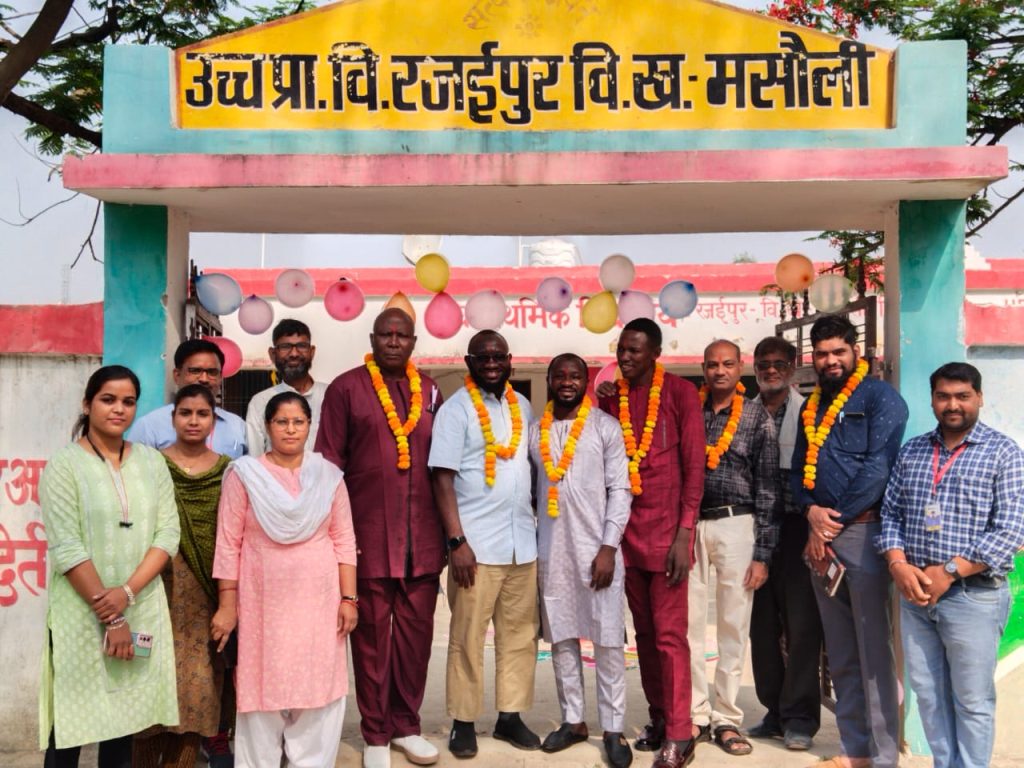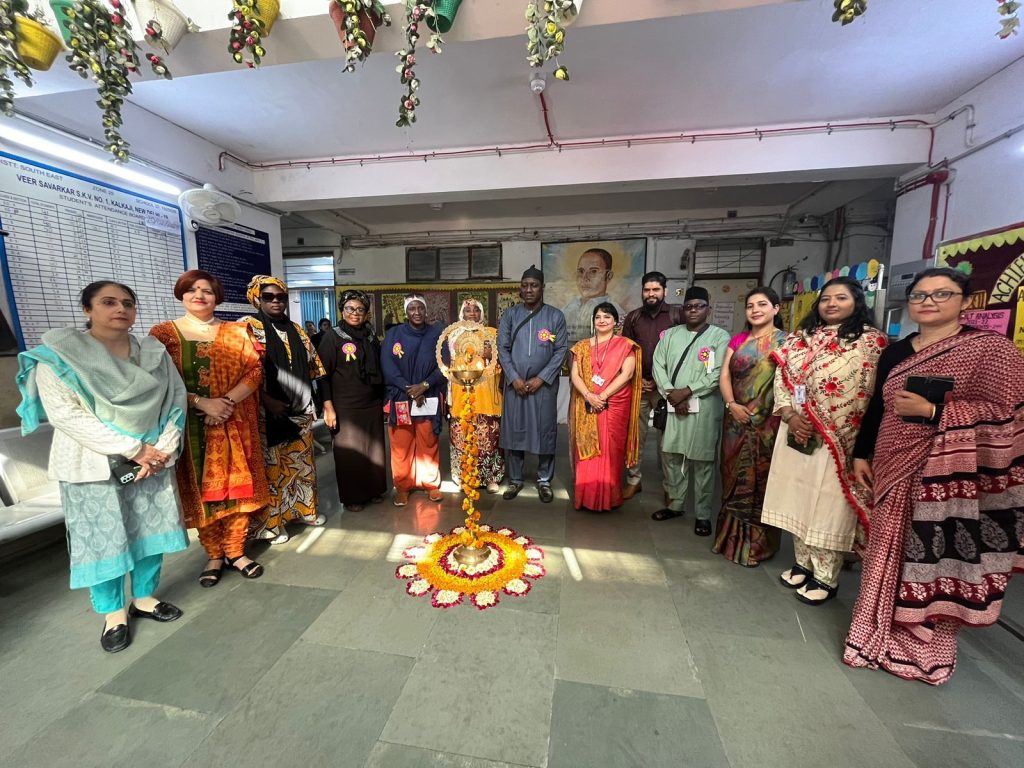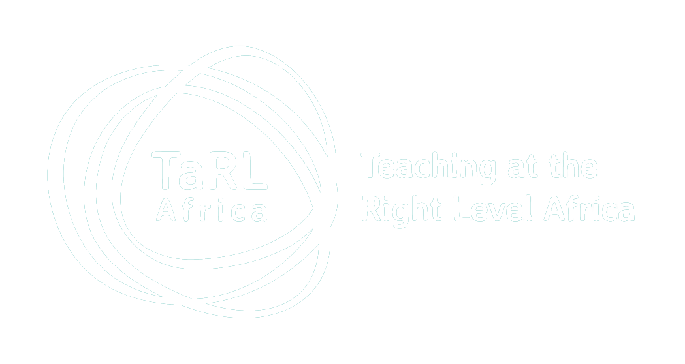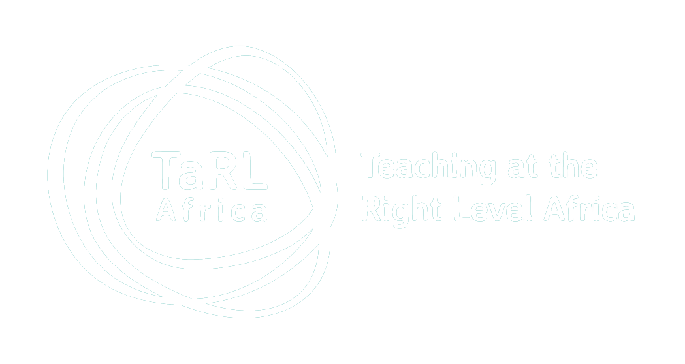
As Teaching at the Right Level (TaRL) interventions grow worldwide, implementers and educators are eager to learn from each other’s context. Two delegations from Nigeria, including government officials from Kaduna State and a delegation of TaRL Africa’s Nigeria country team members, wanted to learn more about the TaRL approach and see it in action in a new setting. They thus embarked on learning journeys to India in the first few months of 2023.
Government officials from Kaduna State in Nigeria visit education programs in India.
“This was an important trip for us, and I learned so much about how children can learn faster,” said Umar Abubakar, Director of School Management at Kaduna State Universal Basic Education Board (SUBEB) and one of the 19 state and federal-level government officials from Kaduna who visited India in February 2023. This delegation was led by Dr. Christy Ayi Alademerin, Permanent Member of the Human Resources of Kaduna SUBEB, and included individuals working closely on Kaduna’s TaRL intervention — KadTaRL.

During their visit, the government officials observed multiple foundational literacy and numeracy interventions in Delhi and Andhra Pradesh. In particular, they had a chance to observe the Andhra Pradesh state government’s Teaching at the Right Level (TaRL) program, which is currently being implemented in over 60,000 schools in collaboration with Pratham Education Foundation. For Ahmad Sani, Director of Human Resources at Kaduna SUBEB, the learning journey was an eye-opening experience as it helped his team to think about potential solutions to the challenges affecting TaRL implementation in Nigeria. “ I could see how we can work with a large number of learners in a TaRL class. I also observed how to train a large number of teachers systematically without disrupting the school system,” he said.
TaRL Africa Nigeria team
TaRL Africa team members from Nigeria, who visited India later in April 2023, found that the learning journey was equally informative. Composed of members of the Content and Training team and the Measurement, Learning, and Evaluation team, the delegation had the opportunity to engage with TaRL classroom methodologies and studied the different processes to integrate TaRL interventions in the education system. The team also held a workshop with TaRL Africa central team members based in India to conduct deep dives on various aspects of the approach including session planning, training agendas, and more.
During their visit, the team saw Pratham Education Foundation’s education programs in Lucknow and Delhi. This allowed them to study how volunteer-led models can be implemented with children in school and also in their communities.“It was great to see a tripartite collaboration amongst communities, government, and Pratham to ensure that children learn effectively,” said Philip Adigun, a team member from TaRL Africa’s Nigeria team. He also stated that the team is eager to replicate some of the innovations seen in India, such as processes for the efficient provision of teaching and learning materials, involving mothers’ groups in various interventions, and enabling the presence of TaRL volunteer teachers in TaRL classrooms.
The visit also allowed the team to reflect on how NGOs can work with governments to build strong partnerships for education programs in the Indian context. “One key lesson the Nigerian team is taking away is that Pratham, through her activities, has endeared herself to the hearts of the government, the community, and the children alike. We hope TaRL Africa will achieve this too, not just in Nigeria but also in the other countries where it works,” said Philip.
Adapting and actioning new learnings
Learning journeys are a valuable way for TaRL implementers to take stock of their own TaRL adaptation, improve these efforts, and innovate to find novel solutions to help accelerate children’s learning. At the conclusion of their learning journey, Kaduna State’s government delegates were inspired by the level of government ownership in the TaRL intervention they saw in India and wanted to continue expanding the program to more LGEAs in Kaduna with support from TaRL Africa. They were also keen to mobilize youth, mothers, and community members in education programming.
“We left New Delhi with a clear understanding of how to work with critical stakeholders,” said Philip, who is working with the team to develop systems that support effective stakeholder mapping, tracking engagement in interventions, and reviewing stakeholders’ performance. Team members have also been ideating on how to leverage existing government systems to bolster support for TaRL from community members and volunteers. However, “simplicity” remains paramount as the team streamlines processes to build awareness and buy-in on TaRL at different levels of the education systems in Nigeria.
_______
Philip Adigun is a TaRL Advisor in Kano State, Nigeria, Tanvi Barnejee is a Senior Associate, Programs and Partnerships at Pratham International.

